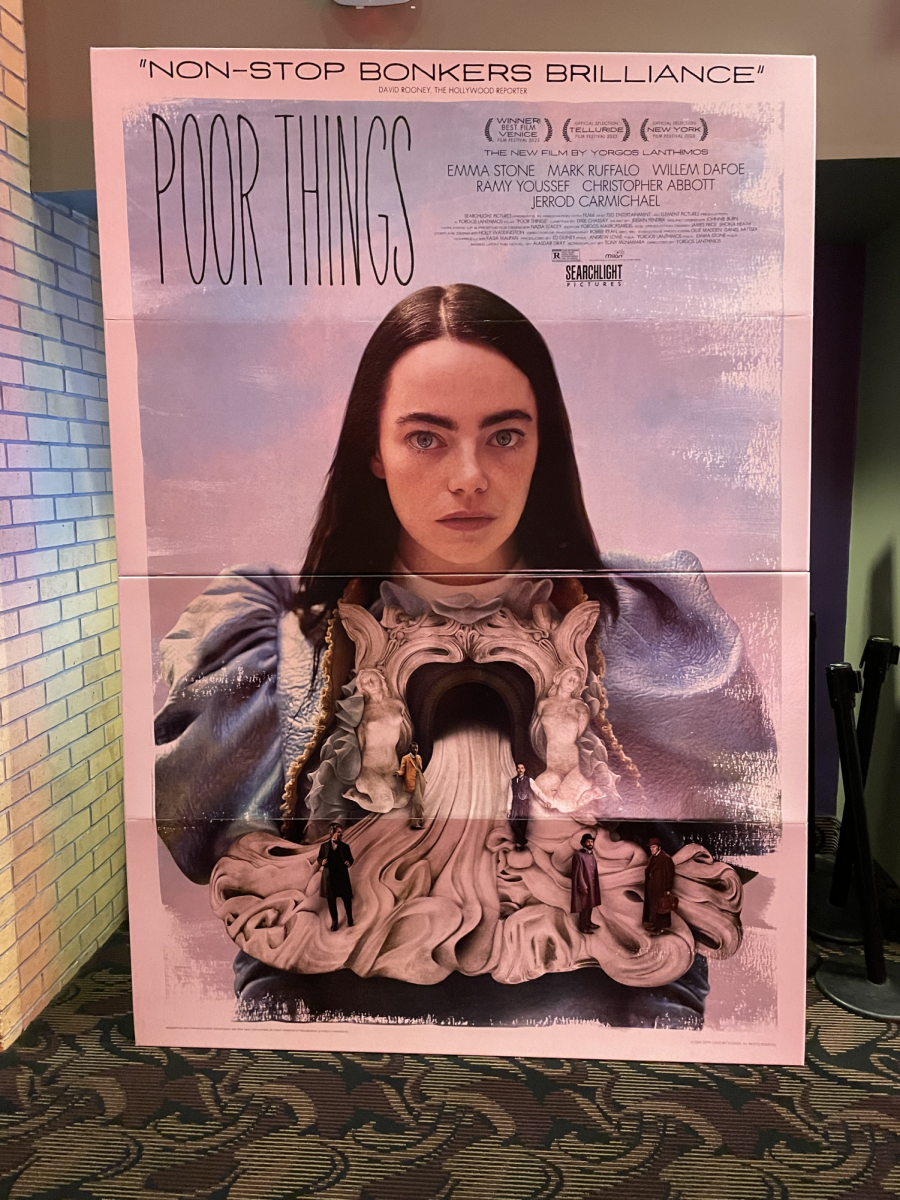I have not cared much for the films of Yorgos Lanthimos, the boundary-pushing Greek auteur. His previous works such as The Lobster and The Killing of a Sacred Deer struck me as shallow and empty. The edgy and quirky nature of his films has drawn comparisons to luminaries like Luis Buñuel and David Lynch. However, they often come across as vapid theoretical exercises, empty provocations, rather than something genuine and purposeful. Poor Things is entirely different.
“She’s an experiment, her brain and her body are not quite synchronized,” says mad scientist Godwin Baxter (Willem Dafoe) of his adopted daughter, Bella (Emma Stone), who has come under his care in circumstances far too outrageous to disclose. Lanthimos takes us on Bella’s metamorphosis from youth to adulthood, documenting a journey that spans her sexual awakening, linguistic transformation, intellectual flowering, and pursuit of autonomy. It makes a lot of swings, and not all of them land. However, it remains a wholly admirable work, even in its missteps.
For one, the film contains a level of experimentation with style and form that feels alien to the mainstream Hollywood landscape. Lanthimos’s use of fisheye lenses, lavish set design (miniatures, LED backdrops, matte paintings), and sumptuous colors form a unique, unnatural world that reflects the worldview of Bella’s spunky idealism. Cinematographer Robbie Ryan, described in an interview with Variety the jumbled variety of lenses and cameras that helped form the idiosyncratic look of the film – VistaVision cameras, glass built for 16mm hoisted onto 35mm cameras, and lenses so wide that the sets had to be constructed so that they would fit into frame.
The performances are spectacular as well, another surprise considering Lanthimos’s history of bringing flaccid, soulless performances out of talented actors. Willem Dafoe is delightful, per usual, with a performance that is intimidating on the surface and deeply endearing beneath. Mark Ruffalo, finally liberated from the tyrannous claws of the Marvel Cinematic Universe is hysterical in his portrayal of a sort of bizarro Cary Grant protagonist. He initially presents himself as a gentlemanly casanova as he sweeps Bella off his feet. As the narrative unwinds, his layers are peeled back to reveal his true nature as a morally bankrupt cad. Emma Stone is truly exceptional. Dublin High senior, Charlie Reyes, lauded Stone as the Oscar frontrunner, saying that the “physical and emotional range she achieves is incredible” and that she “truly shines through Bella’s progression from her early childish stages to the enlightened young woman she becomes by the end of the film.”
The film has often been likened to Frankenstein, and while that is certainly apt, another comparison that struck my mind was Greta Gerwig’s Barbie. In terms of barebones narrative, the films are nearly identical. Barbie and Bella are immature women crafted in dubious circumstances who are exposed to the beauty and brutality of the world trying to grapple with the fact that they must coexist. Both films create a textured world that feels genuinely lived in, are anchored by strong lead performances, and exhibit incredible ideological incoherence. Where Poor Things shines above Barbie is in its satire, which sometimes feels genuinely biting. Both works tear apart the idea of “nice guys” – hypocritical men who espouse progressive ideas but are insecure and misogynistic underneath; both attempt scathing critiques of high society and traditional values. Barbie feels milquetoast because of the constraints placed upon it – a PG-13 rating and being produced by a multinational corporation with the same ideals it is attempting to lambast.
However, neither film is as feminist as it would like to believe. Poor Things flirts with progressive ideas such as socialism and rejection of the patriarchy but treats them as trifles, not interrogating them deeper, only looking at them on a surface level. It is not truly radical, but a work of Girlboss Feminism. It accurately depicts the depravity and hypocrisy of patriarchal society, but dismisses this as something that cannot be fixed. Boys will be boys. According to Lanthimos, the way for gender progress to be made is by remaining positive and persevering, not legitimate social change.
Poor Things is an audacious and inventive film that is gorgeously shot and performed, feeling genuinely realized and sharp. Despite its flaws, it is some of the best work to come out of all involved and is worth seeing in theaters.



































